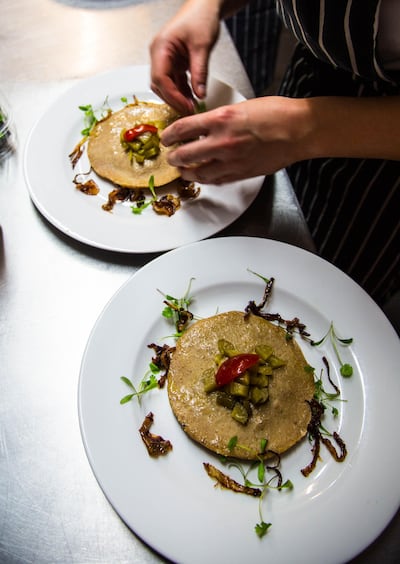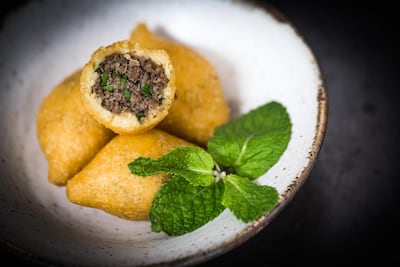Philip Juma makes no secret of his desire to introduce Iraqi food to the world. In addition to showcasing the cuisine’s rich flavours, the chef wants to show a different side to the war-torn country – a side that is not usually captured in headlines. For many years, the true richness of Iraq’s culture has been overshadowed by political conflict and war. Yet amid the devastation, Iraqi cuisine has remained intact.
The half-British, half-Iraqi Juma, 34, has spent the past four years cooking at Juma Kitchen, his proudly Iraqi supper club in London. He hopes that his signature dishes will take centre stage not only in the United Kingdom, but also across the Arab world as he prepares to bring his creativity to Dubai in January. "Iraq is a country that has wonderful heritage, history and amazing recipes. I want people to know that there is nothing like this out there," Juma says.

Through the contemporary touches he adds to his dishes, the self-taught chef has taken on the task of bridging the cultural gap between Iraq and the West. “Iraqi food is an amalgamation of the Middle East – Turkish meets Lebanese with an Indian influence,” he says, adding: “There’s so much craft that goes into it, which is what makes it incredible and unique.”
Juma’s recipes reflect the rich heritage and strong influences of the region’s culinary traditions. Many empires have passed through Iraq over the centuries, leaving their mark on the country’s dishes, and linking Iraqi history, culture and cuisine.
Since 2012, Juma has presented these dishes at pop-up events and sell-out supper clubs across London, but he is now also turning his attention to private catering and consulting.
"I want to inspire people and offer a vision for future Iraqi chefs. There isn't a lot of love in Iraqi food," he says, in that Iraq's cuisine doesn't get the same "care and attention" that other cuisines get. But when it does, Juma believes it will create a space for people to take on the cuisine and inspire others. "It will push people to go out there and do it themselves, which is what I want – I want Iraqi cuisine everywhere," he says.
Juma wasn't always a chef. He previously studied economics at the University of Leeds and worked for five years as an equity broker at various finance and wealth-management companies in London. However, he spent most of his free time at weekends cooking, volunteering in restaurants and helping friends on their street-food stalls.

“London was going through a street-food craze,” he says. “I was seeing Korean burgers, jerk chicken, Thai food. And I thought where is the Iraqi food?”
The country’s most famous dishes are kubba Mosul, a type of meat pie; kubbat halab, a fried croquette of yellow rice stuffed with lamb; and dolma, or vegetables stuffed with rice and minced meat, slowly cooked in lemon, pomegranate and tamarind.
“Iraqi food is very labour-intensive, so commercially, you need a lot of manpower to do it. I used to sit for two days straight to make kubba, and that’s only a starter,” Juma says.
He laments that people in the West often associate Iraqi food with the country’s devastation, but he hopes that his dishes will serve up a vision of Iraq that will help to change that public perception.
The chef usually puts together five courses as part of the tasting menu at his supper clubs and brunch events.
“The idea was to target non-Iraqis,” he explains. “I actually had an English couple who called and said they want Iraqi food at their wedding,” he says. “I was blown away – it’s such a beautiful feeling, and that’s what drives me”.
A pop-up event featuring chef Philip Juma’s Iraqi cuisine will be held in January at Axe House, Armada Blue Bay Hotel, Cluster P, Jumeirah Lakes Towers, Dubai



